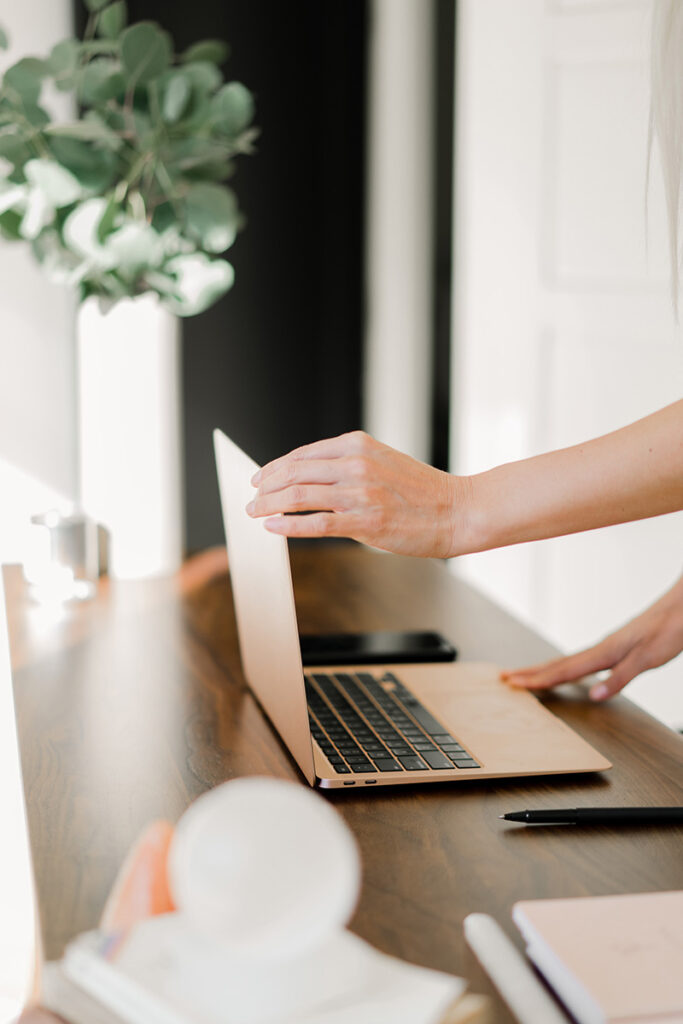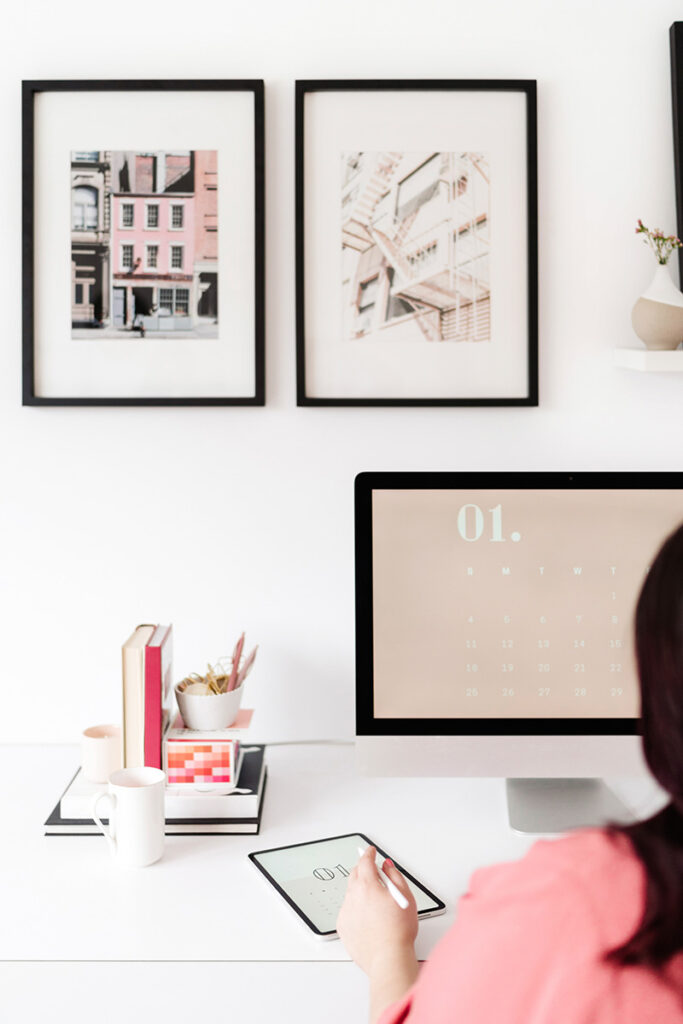11 Tips for Having a More Productive Day
Whether you work from home or in an office, it can be difficult to stay focused and motivated throughout the day.
If you work from home, there will be distractions like the television or your bed that can make it tempting to take a break. If you work in an office, there may be colleagues who are disruptive or meetings that drag on.
However, there are a few things that you can do to have a more productive day. You don’t have to make drastic changes to your routine, but even small tweaks can make a big difference.

Know Your Personal Productivity
Not because a certain routine or strategy works for someone else, means it will work for you as well. Your ideal productive day may differ from that of your colleagues or friends, and your job is to figure out what works best for you.
Some people work better in the morning, while others are more productive in the afternoon or evening. Some thrive on strict deadlines, while others prefer to work at their own pace. Some find Tuesday their most productive day, while others prefer Monday or Friday.
Take some time to figure out what your most productive time of day is, as well as what type of environment and working style suits you best. Once you know these things, structure your day accordingly to achieve your maximum productivity.
For example, if you’re more productive in the morning, schedule your most important tasks during that time. If you work better with background noise, consider playing some music while working.
Early bird or night owl, planner or spontaneous – identify your personal productivity levels and use them to your advantage in planning out your day.
Knowing yourself and what works for you can greatly increase your productivity, boost your motivation, and ultimately lead to a more successful day.

Identify Your Habit of Procrastination
Procrastination can be a major barrier to productivity. It’s easy to get distracted by social media, emails, or other non-essential tasks when we should be focusing on our work.
One way to combat this is by identifying your specific habits of procrastination. Do you tend to check your phone every 5 minutes? Or, do you constantly refresh your email inbox? Once you know what your specific triggers are, you can take steps to avoid them.
For some people, procrastination is a way to avoid difficult or overwhelming tasks. In this case, breaking down big projects into smaller, more manageable tasks can help to alleviate the feeling of being overwhelmed.
For others, procrastination may stem from a lack of motivation. In this case, setting clear goals and reminding yourself of the purpose behind your work can help to reignite your drive and focus.
In fact, simply acknowledging and being aware of your procrastination habits can go a long way in helping you break them. So, pay attention to your behaviors and make conscious efforts to eliminate them.
11 Tips for Having a More Productive Day
After considering your personal productivity and identifying your habits of procrastination, here are 11 tips to help you have a more productive day, boost your efficiency, and achieve your goals:

Start Your Day in a Slow and Relaxed Manner
If you’re rushed in the morning, it can set the tone for the rest of the day. You’ll be frazzled and stressed, which isn’t a great way to start working. Stop jumping out of bed and running around frantically. Instead, take your time and start your day in a slow and relaxed manner.
You can try doing some gentle stretching or yoga to wake up your body. Then make time for a cup of coffee or tea, and eat a nutritious breakfast slowly.
Once you’re done, take some time to meditate or do some deep breathing exercises. This will help you to clear your mind and start the day with a more positive attitude.
This morning routine helps you to start waking up your body and mind gradually, instead of going from 0 to 100 in an instant. As a result, you’ll feel more relaxed and ready to take on the day.
A healthy breakfast will also provide you with the energy and nutrients needed to stay focused and productive throughout the day. Skipping breakfast or having a sugary, processed meal can lead to crashes in energy and concentration later on.
Having a morning ritual that you enjoy and that sets you up for a productive day is key in maintaining motivation and focus.
Set Intentions for Your Day
During your morning routines, it’s also a good idea to set intentions for your day. This means taking a few minutes to think about what you want to achieve.
What are your daily tasks? What do you hope to accomplish by the end of the day? These are like a to-do list, but with a more positive and productive focus.
When you have clear intentions, it’s easier to stay on track throughout the day. You’ll be less likely to get sidetracked or discouraged because you’ll know exactly what you’re working towards. And if you do find yourself getting off course, it will be easier to get back on track because you’ll have a clear goal in mind.
Take a few minutes each morning to write down what your intentions are for the day. Be specific and realistic, and don’t forget to include both work-related goals and personal goals.
For this work-life balance approach, it’s important to not only focus on work tasks, but also on taking breaks and self-care. By setting intentions for your whole day, you’ll be able to maintain a healthier balance and have a more productive and fulfilling day.
Have a To-Do list of the Day
Besides your intentions list, a list of tasks is also helpful in keeping you focused and productive throughout the day. It’s important to have a good overview of what needs to be completed and prioritize tasks accordingly.
One tip is to break down larger projects into smaller, more manageable tasks. This way, you can check off multiple items on your to-do list throughout the day and feel a sense of accomplishment.
Another helpful strategy is to assign specific times for each task. This will help you stay organized and prevent you from feeling overwhelmed by the amount of work that needs to be completed.
Having a check list for your day will not only help you remember all your tasks but it will also give you a sense of accomplishment when you tick off each item at the end of each day. This can motivate and encourage you to keep going with your day.

Use Daily Planner
Daily planner is a great tool to help you stay organized and on track with your tasks, especially if you have a busy schedule with a lot of things to do during the day.
A good daily planner should have sections for your to-do list, appointments and meetings, notes, and any other important tasks or reminders. This way, you can have all your important information in one place and easily refer to it throughout the day.
Another benefit of using a daily planner is that it helps with time management. You can allocate specific blocks of time for each task, making it easier to manage your time effectively.
Not only does a daily planner help you prioritize and plan out your tasks, but it also serves as a visual reminder of what needs to be done. This can help prevent procrastination and keep you accountable for your daily goals.
There are many different types of planners available, so find one that suits your needs and preferences. You can also use digital planners or apps if that works better for you.
For a digital version, Google Calendar is a popular option that allows you to set reminders and create recurring events. And the best thing is that it’s totally free to use!
If you’re more of the pen-and-paper type, try out different planners until you find one that works best for you. Experiment with different layouts and designs to find what keeps you motivated and organized.
There’s no one-size-fits-all approach when it comes to planners, so find one that caters to your personal productivity style and helps you stay on top of your tasks. Overall, incorporating a daily planner into your routine can greatly increase your productivity and lead to a more successful day.
“Eat the Frog”
Brian Tracy originally came up with the concept of eating the frog when your day starts, which means starting with your most difficult task. This might not be the most pleasant way to start your day, but it’s very effective.
The reason why this works is because it’s much easier to stay focused when you have an end goal in mind. When you start your day with a smaller and less important task, it’s easy to get sidetracked and waste time.
However, if you start with your most important task, you’re more likely to stay focused and get it done quickly.
Of course, this doesn’t mean that you should do your most difficult task first thing in the morning. If you’re not a morning person, it might be better to wait until after breakfast. But whenever you start your day, try to get your most important task out of the way as soon as possible.
Focus on One Project at a Time
Stop trying to multi-task! Research has shown that it’s actually less productive than working on one task at a time.
When you’re trying to do too many things at once, your brain gets overwhelmed and it’s harder to focus on any one thing.
Instead of trying to do everything at once, focus on one project at a time. This doesn’t mean that you should only work on one thing per day, but rather that you should focus on one thing at a time.
For example, if you’re working on a proposal, don’t start reading your emails or checking social media until you’re done.
If you need to take a break from your project, that’s fine. But when you start working again, focus on that one project until it’s done.
You’ll be surprised at how much more productive you are when you’re not trying to do too many things at once.

Eliminate Distractions
If you want to be more productive, you need to eliminate distractions, like email notification, social media, phone calls, and even co-workers who like to chat. If you can eliminate those distractions, you’ll be surprised at how much more productive you are.
If you work in an office, try using noise-cancelling headphones to block out any distracting noises. And if you have a deadline coming up, consider working from home or finding a quiet space where you can be more focused and productive.
If you work from home, create a designated workspace where you can shut the door and minimize outside distractions.
If you live with someone else, like your room mate or your own family, make sure they know your work schedule and ask them to respect it.
Also, make it a habit to check your email and social media only at specific times during the day. This will help you to stay focused on your work and not get sidetracked by constant distractions.
Set a Time Limit
When you’re working on a project, it can be easy to get lost in the details and spend hours on something that should only take a few minutes. To avoid this, set a time limit for each task.
Let’s say, you’re writing a report. So, give yourself 30 minutes to write the first draft. Once the time is up, stop writing and move on to the next task. If you finish early, great! You can use that extra time to proofread or make any necessary changes.
But if you’re not finished, don’t worry. The important thing is that you got something down on paper. The first draft doesn’t have to be perfect, and it will be much easier to fix once it’s done.
Use a Timer
If you have trouble sticking to time limits, use a timer. There are many different ways to do this, but one of the simplest is to set a timer on your phone. When you start working on a task, set the timer for the amount of time you have to work. Once the timer goes off, stop working and move on to the next task.
If you’re new to this concept, try the Pomodoro Technique. This is a time management technique that involves working for 25 minutes and then taking a 5-minute break.
After four “pomodoros,” or work periods, take a longer break of 15-20 minutes. This technique is helpful because it breaks down your work into manageable chunks, and the short breaks help to keep you focused and prevent burnout.
Take Regular Breaks
In addition to taking breaks between tasks, make sure to take regular breaks throughout the day. Every couple of hours, get up and stretch your legs or grab a cup of coffee. This short break will help to keep you energized and focused.
If you find yourself getting overwhelmed, take a longer break. Go for a walk in the nature will help you to clear your head and come back feeling refreshed. A short nap will also do wonders for your energy levels.
Use Positive Affirmations
Affirmations have been shown to boost confidence and productivity. Depending on your goals, using affirmations can help to keep you motivated and focused throughout the day.
For example, if you have a big presentation coming up, tell yourself “I am confident and well-prepared” or “I will deliver a successful presentation.” These positive affirmations can help to boost your confidence and improve your performance.
One of the best ways to use affirmations is to write them down and keep them somewhere visible, like on your desk or computer monitor. This will serve as a constant reminder throughout the day, keeping you focused and motivated.

How to Avoid Mental Fatigue
Even with the best time management techniques, we are all human and can experience mental fatigue. This can lead to burnout, decreased productivity, and even health problems.
Although mental fatigue is normal, suffering from it too often can be detrimental. You may find yourself struggling to focus or feeling constantly overwhelmed and stressed.
To avoid mental fatigue, make sure you take care of yourself both physically and mentally. Get enough sleep each night, eat a healthy diet, and schedule regular breaks throughout the day.
If you’re feeling overwhelmed, turn off your devices and disconnect from work for a while. If it’s in the evening, just go to bed. A good night’s sleep can do wonders and help you to feel rejuvenated the next day.
But of course, it’s just a quick fix and you’ll need to take a more proactive approach to prevent mental fatigue in the long term.
Remember, productivity isn’t just about getting things done; it’s also about maintaining a healthy balance between work and personal life.
Additionally, make sure to take time for activities that you enjoy and help you relax. Whether it’s reading a book, going for a run, or practicing yoga, find something that helps to clear your mind and rejuvenate your energy.
Aim for a work-life balance and avoid overworking yourself. Remember, taking care of your mental health is just as important as your physical health when it comes to productivity. So don’t forget to prioritize self-care in your daily routine.
The Editor’s Note
Productive people know the value of time and understand how important it is to manage it effectively. At the end of the day, you only have 24 hours, and how you use them can make all the difference.
If you can implement these tips into your daily routine, you’ll find yourself becoming more productive and efficient. And remember, it’s not just about getting things done; it’s also about maintaining a healthy balance and taking care of yourself in the process.





One Comment